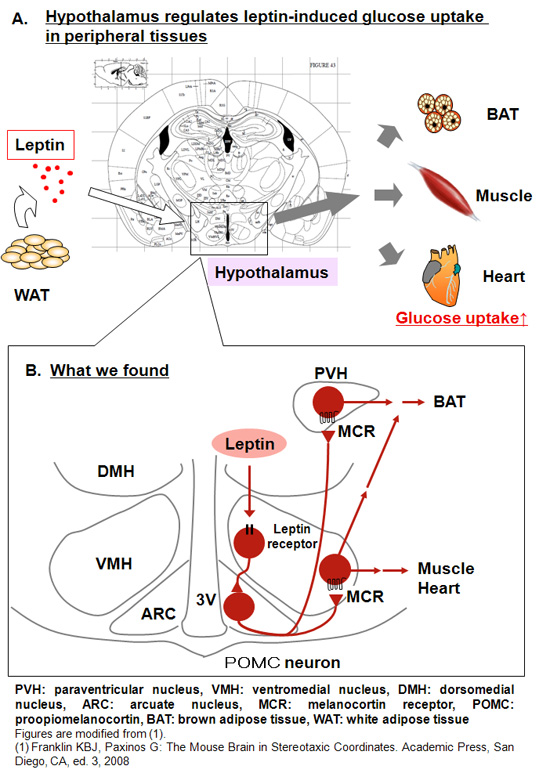Leptin is an adipocyte-derived hormone that regulates food intake and energy expenditure. Recently, many papers reveal that leptin also regulates glucose metabolism. Lipodystrophic patients, who loose white adipose tissue congenitally or acquiredly, cause severe diabetes mellitus due to low blood leptin level. However, restoration of blood leptin level in the patients improves the diabetic phenotypes dramatically. One of the most important roles of leptin in glucose metabolism is to enhance glucose uptake in peripheral tissues through the hypothalamus. Melanocortin receptors (MCR) mediate some central effects of leptin. However, the role of leptin receptor and MCR in individual hypothalamic nuclei in glucose uptake in peripheral tissues remains unclear.
We injected leptin into several hypothalamic nuclei preferentially in free-moving mice, and glucose uptake was measured by 2-[3H]deoxyglucose method in vivo. We found that VMH is the most important site in the hypothalamus in leptin-induced glucose uptake in peripheral tissues (Figure B). The effects of leptin are dependent on MCR activation. The MCR in VMH regulates glucose uptake in skeletal muscle, BAT, and heart, while MCR in PVH regulates glucose uptake in BAT (Figure B) preferentially. These results are thus important findings to understand the regulatory mechanism of leptin and hypothalamus in glucose metabolism in peripheral tissues.
Distinct effects of leptin and a melanocortin receptor agonist injected into medial hypothalamic nuclei on glucose uptake in peripheral tissues.
Toda C, Shiuchi T, Lee S, Yamato-Esaki M, Fujino Y, Suzuki A, Okamoto S, Minokoshi Y
Diabetes 2009 (published on web)
